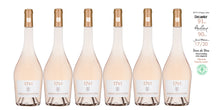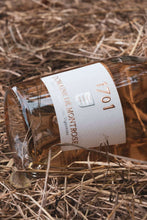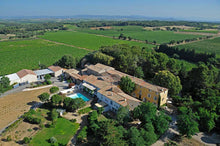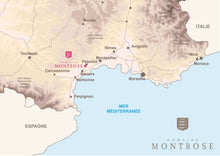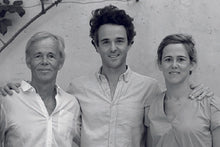

自从 1701年起,我们一家就住在法国南部的Domaine Montrose。
1701 是一款卓越的手工酿造葡萄酒。
这款酒由一种罕见的混合葡萄酿制而成,其中的歌海娜产自火山土壤,而胡珊则种植在地中海灌木丛或荒野中部。
这 葡萄酒 是 大概 一 的 这 世界上的 最棒的桃红葡萄酒。
Bernard & Olivier Coste,业主、酿酒师
著名葡萄酒作家 Tom Cannavan 对 1701 非常着迷。他说
“我不得不说,我非常喜欢这种产自火山土壤的超淡、结晶的歌海娜混合物”。
优质的: 2021 - 2022
称谓: IGP 通格山麓
土壤: 拉克鲁瓦 (La Croix) 出产的最佳葡萄,该地块的土壤为深色火山土壤。
葡萄: 85% 黑歌海娜、15% 胡珊
酿酒: Roussanne 葡萄在短暂浸渍前先去梗。Grenache Noir 葡萄直接压榨。低发酵温度 (15-18°C) 可增强其细腻度。然后,一部分在不锈钢桶中陈酿,另一部分在新的法国橡木桶中陈酿。从葡萄藤到装瓶,葡萄酒完全在 Domaine Montrose 酿造和制作。
品尝: 颜色淡雅,清澈透明。散发小红浆果和无花果的香气。口感结构优雅,矿物质味和新鲜感平衡。
酒精含量: 13.5%
服务: 在 8°C 时可作为开胃酒,在 10°C 时可作为餐酒。1701 是煎扇贝、生鱼和烤鱼、时令水果甜点的完美搭配……
赞誉: “优雅的花香覆盆子香气,迷人的水果口感,奶油质地的橡木香调。酸味浓郁,余味悠长而复杂。” - 1701 在 Decanter 2021 上获得91/100 的评分。
1701 是一款现酿桃红葡萄酒,也可以陈酿 2-3 年。6 瓶装 1701 葡萄酒采用法国原装纸箱包装。

HVE3 认证和碳中和: Domaine Montrose 获得了 HVE 3 认证,即“环境价值 3 级”,这是法国高环境价值认证的最高级别。这是葡萄园努力实现良性农业的结果:种植 2000 棵树以保护生物多样性,种植葡萄园地被植物,使用机械土壤作业、信息素释放器等。为了限制我们对地球的影响,我们将二氧化碳排放量降至最低。葡萄园还通过资助生态计划来抵消二氧化碳排放量。





